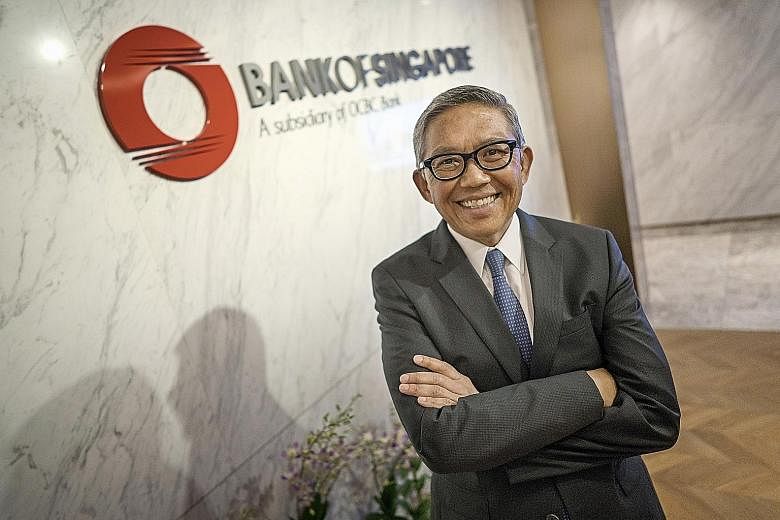The Bank of Singapore, OCBC Bank's private banking unit, is aiming to amass at least US$100 billion (S$137 billion) worth of assets under management by 2020, its chief executive officer Bahren Shaari said yesterday.
The private bank has about 300 relationship managers, and after acquiring the wealth and investment management business that Britain's Barclays Bank has in Singapore and Hong Kong, it will have about 400. Mr Shaari said the target is for each relationship manager to achieve an average of US$250 million worth of assets under management.
To achieve those goals would require a combination of market performance and the bank's ability to attract new clients and new assets from existing clients, he said, adding that "it's about making our bankers more productive".
The US$320 million deal involving the Barclays businesses here and in Hong Kong was announced last month, and the bank is currently at the integration phase. It is slated to be completed by year-end.
This will add more than 1,800 clients to the Bank of Singapore in two of OCBC's core markets, Singapore and Greater China.
On the back of such changes, Mr Shaari also noted several global trends that have prompted the Bank of Singapore to closely study its strategies. These include the emergence of key cities in Asia - where more than 240 cities in Asia will house more than a million people by 2020 - the greater transparency in the banking sector, a changing regulatory environment, and financial technology.
He said: "We concluded that there are a few things we want to do. First, we need to target the key markets we have a competitive advantage in. Asia is a definite... where the highest growth is."
These markets include China, Greater China, Indonesia and the greater South-east Asia region.
The bank will also focus on places where it has "an established presence", like Dubai, where high net worth individuals from the Middle East and the West are drawn to.
"We want to be the top three in the South-east Asian market, and the top five in the Greater China region," he said. "In the Middle East, Dubai market, the target segment will be the ultra-high net worth segment, and to be among the top three."
In the last year, he said the Bank of Singapore has even lifted its activities in the Japan offshore market.
"This is because of the flow of wealth outside, due to the economic environment and opportunities available outside of Japan."
All this activity will be supported by two pillars - one is making it easy for clients to do business with the bank, and the other is equipping its relationship managers with the capabilities to provide sound advice to clients. "It's about a deep understanding of the clients, and offering a whole product suite and solution to them. We not only have to focus on the investment part of it, but also the clients' business requirements. Through the network of OCBC and other parties, we support clients not only in their investments, but also corporate banking activities."
He also noted how the client profile has changed, with more being "global citizens" that move from city to city, and the trend in the sector has been to steer away from mere trading, where clients are charged fees and commissions.
"Compared with five or 10 years ago, to where we are now, the trend has moved to a more discretionary portfolio approach than a trading approach.
"Trading opportunities are a lot less now, many clients have suffered losses in the past, and the regulatory environment for trading activities has become more difficult."
Mr Shaari added that it is a combination of factors and in a low yield environment, trading is expensive because fees and commissions have to be paid for each trade.
"A portfolio basis is more sustainable, as the cost of managing it is lower than trading and yields better results."


